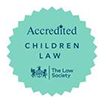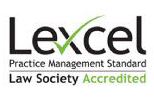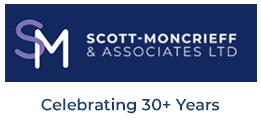Challenging CQC Inspection Reports

Written by: Errol Archer
As a public body CQC is well aware that its decisions are subject to judicial review and, in order to withstand a legal challenge, it must be able to show that its decisions were lawful (i.e. the Health and Social Care Act 2008 has given it the power to make the decision), reasonable, rational and followed the correct procedure. This explains why CQC’s factual accuracy process was introduced; by allowing providers to respond to draft reports before they are finalised, it makes it very difficult for providers to subsequently challenge, by judicial review, decisions made by CQC based on the findings in the report.
Although judicial review challenges can still be brought against CQC, as was seen in the 2015 case of R (ex p SSP Health Limited) v CQC, the factual accuracy process makes it very difficult for providers to argue in court that CQC’s decision in publishing and relying on the inspection report was unlawful, unreasonable or irrational. So, in a sense, where a provider doesn't respond fully to a draft report to correct inaccuracies, to provide context, to provide further explanation and crucially to provide additional evidence in support, it is giving up its right to challenge CQC for any decisions CQC makes based on the report.
Factual Accuracy Process
CQC’s factual accuracy guidance can be found here. As providers have only 10 working days to provide comments to CQC on the draft inspection report, it is important that they start reviewing the draft as soon as it is received. Where providers receive a draft report giving an overall rating of Good or Outstanding, it is still worth the time to review the draft critically. If the overall rating is Requires Improvement or Inadequate, it is essential for providers to devote sufficient time to preparing their response, especially as CQC Warning Notices or other enforcement action is likely to follow.
In many cases the owner, relevant director or quality lead in conjunction with the Registered Manager can review and prepare an effective response to the draft report, without external legal support. In other’s, especially where the provider’s resources are stretched or the draft report contains widespread errors or there are concerns about the conduct of the inspection itself, external legal support may be preferable. Either way, the following approach is recommended:
- read the draft report paragraph by paragraph
- note any obvious typographical or numeric errors
- note any statements in the draft that are factually inaccurate
- note any findings or conclusions that the inspector has drawn that appear not to take into account the context of your service
- prepare your response to each erroneous statement and suggest appropriate changes to the wording of the draft report
- explain, in a covering letter, how for each rating category, how the changes to the draft report should affect the individual ratings
- respond specifically to any alleged regulatory breaches
- identify and collect evidence to support each assertion that you make
- collate and present the evidence in a structured way that easy to read
Where CQC perceives the care falls below the legal standards, they will issue Warning Notices which again must be responded to within 10 working days.
Although it can be a time consuming process to respond properly to CQC draft reports and Warning Notices, it is time well spent to set the record straight and to protect your business reputation.

Errol Archer Consultant Solicitor Advocate (Civil) Health & Social Care Law Expert Regulation and Compliance
For more information get in touch via our online contact form or call Errol on 020 3984 7883 .
Errol's LinkedIn can be found here.
By accepting you will be accessing a service provided by a third-party external to https://scomo.com/









